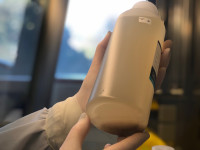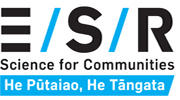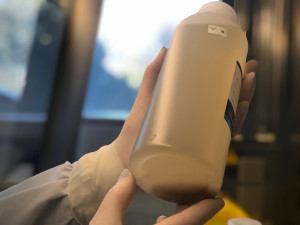 ESR is progressing its research to detect COVID-19 in wastewater with an eight-week sampling pilot at sites throughout New Zealand.
ESR is progressing its research to detect COVID-19 in wastewater with an eight-week sampling pilot at sites throughout New Zealand.
With support from MBIE’s Covid-19 Innovation Acceleration Fund, ESR has established methodology for the detection of SARS-CoV-2 viral fragments in wastewater through ongoing sampling around the Jet Park Hotel quarantine facility in Auckland. The research is now moving into the second phase which will involve taking samples from wastewater treatment plants across the country over a limited period.
The testing of samples from selected sites will allow the researchers to prove the methods are robust and evaluate sensitivity, while also identifying any improvements around logistics that can deliver greater efficiency and ease of implementation.
The samples will be collected from locations with managed isolation and quarantine (MIQ) facilities (Auckland – Eastern, Christchurch, Hamilton, Rotorua and Wellington) and areas with no facilities (Auckland – Western and Rosedale, Dunedin, Gisborne, Invercargill, Napier, Nelson - Central/North, New Plymouth, Palmerston North, Queenstown, Taupo and Whangarei). The treatment plants will be sampled at least weekly. This will represent the collective sewage of all residents feeding into that wastewater plant.
ESR science leader, Dr Brent Gilpin says the sampling period is about the logistics of how sampling might work and to further reinforce the method.
“We see wastewater testing as a way to prompt or guide clinical testing, not replace it. The project is aiming to establish how sewage sampling results may be combined with other established epidemiological surveillance data, like our current gold-standard testing regime of PCR testing of nasopharyngeal swabs. The established tools will remain the most sensitive and rapid way of identifying an outbreak. We want to add value to that through this research.”
“If ESR does find unexpected positives, in other words, a positive where we did not expect to find one, there is a plan in place and the result will be confirmed and reported to the Ministry of Health who will provide an appropriate response.”
ESR environmental virologist, Dr Joanne Hewitt says interpretation of negative and positive results can be a challenge.
“The context within which you interpret the data is just as important as how you detect it. For example, virus fragments can still be detected in the stools of some people for weeks following recovery from COVID-19, and these can be detected in the sewage. This means that a positive result does not always mean that there are active cases in the community. Conversely, a negative result does not necessarily imply that there are no active cases either. Not everyone with COVID-19 will excrete the virus in their stools, and the detection methods have limited sensitivity - we are still understanding these factors,” Dr Hewitt says.
Once this 8-week sampling period is completed, ESR will review the data and make recommendations to the Government on options for ongoing surveillance of sewage for any SARS-CoV-2 transmission in the community. “The country would need to explore options to fund and organise any ongoing or expanded surveillance, but that is a wider decision to be made by the Government which they need good science to lead their decision,” Dr Gilpin says.
ESR is part of ColoSSoS (Collaboration on Sewage Surveillance of SARS-CoV-2) a project led by Water Research Australia and operating in parts of Australia, New Zealand and the Mekong countries. The project has the goal of ensuring experts are liaising and using the most reliable and robust methods and techniques to find a way to conduct this work for the good of communities.

